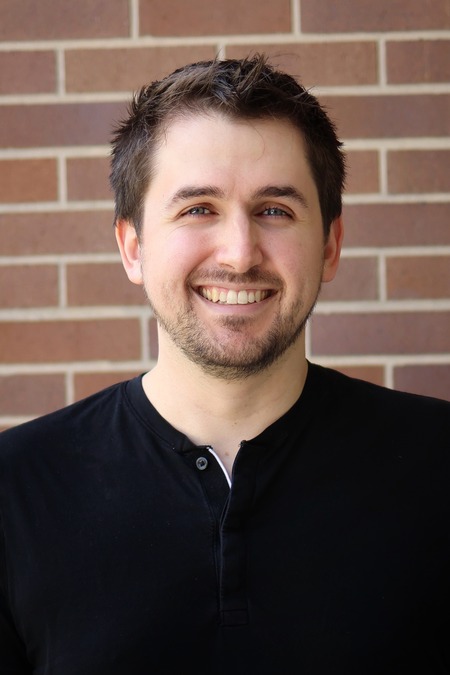Dr. Matt Schnizlein
Dr. Matt Schnizlein is a postdoctoral trainee working in Sean Crosson's lab. Here are his answers to the Micro Biography questions:

How and when did you become interested in the field(s) of microbiology, genetics, and/or immunology?
The first memory of microbiology was watching a protist swimming around in a lake water culture I made in middle school. Culturing bacteria in my sophomore clinical microbiology class cemented that interest!
Were there any particular people or events who were influential in your journey?
So many people have mentored me as I pursue this journey in science! In undergrad, I had two outstanding summer internship mentors, Scott Weaver (UTMB-Galveston) and David Fredricks (Fred Hutch Cancer Research Center). The trainees/scientists in their labs (particularly Rose Lansjoen, Christina Kohler and Sujatha Srinivasan) did a wonderful job helping me make my first few steps in a research lab. At Northern Illinois University, I had a really great microbial ecology/systematics professor (Wesley Swingley) who also hosted weekly board game nights (the highlight of my week!). In grad school, I learned a lot about researching and the challenges of living life while working in the academic environment from my thesis advisor Vince Young as well as other researchers like Anna Seekatz, Tom Schmidt, Krishna Rao and Jonathan Golob. But honestly, if it weren’t for the encouragement and support from family and friends outside of my immediate scientific sphere, I probably wouldn’t have stuck with it!
How did you come to be a part of this department?
I joined Sean Crosson’s lab after finishing my PhD at the University of Michigan because of a really cool project investigating the stress responses of a gut bacteria called Bacteroides fragilis. Being able to combine molecular research approaches with the concepts I learned in grad school was an opportunity I couldn’t pass up!
What is your main research area right now and why is it important?
I study how Bacteroides fragilis survives detergent-like molecules called bile acids, which disrupt the bacterial membrane. Specifically, I study how B. fragilis uses cardiolipin (i.e., an important component of the bacterial membrane barrier) and a vacuolar-type ATP synthase (i.e., a rotating energy pump) to maintain ion gradients it can use for potential energy. These components of the bacterial cell work together to act much like a hydroelectric dam holds back water to generate electricity. My work is important because it provides insight into processes that bacteria use widely, but are understudied in how they help bacteria survive in the human gut.
How do you see your research evolving?
Each day I come in to work, I’m presented with unique challenges that can shape the course of my project. I might start my day with a particular idea of how my bacteria operates but may have to adjust those ideas at a moment’s notice!
What types of activities are you involved in outside of research?
I like to play various roleplaying and board games with my boyfriend or other friends. I also enjoy listening to music (folk/neoclassical), going to concerts and participating in my church’s bell choir. When not doing those, I run a small business (Inktree Miniatures) where I 3D print science- and RPG-themed models.
Is there anything else you’d like to share?
Microbes are awesome! 😊
What is next for you? What do you see as your current career trajectory?
My current plan is to work outside of academia as a researcher/bioinformatician. I very much love college-level teaching, so my backup plan is being a professor at a primarily undergraduate institution. Even if I leave academia for my primary job, I still hope to moonlight as an instructor at a local community college or liberal arts university!